In Images: DHL's 'Parcelcopter' Delivery Drone
Get the world’s most fascinating discoveries delivered straight to your inbox.
You are now subscribed
Your newsletter sign-up was successful
Want to add more newsletters?

Delivered Daily
Daily Newsletter
Sign up for the latest discoveries, groundbreaking research and fascinating breakthroughs that impact you and the wider world direct to your inbox.

Once a week
Life's Little Mysteries
Feed your curiosity with an exclusive mystery every week, solved with science and delivered direct to your inbox before it's seen anywhere else.

Once a week
How It Works
Sign up to our free science & technology newsletter for your weekly fix of fascinating articles, quick quizzes, amazing images, and more

Delivered daily
Space.com Newsletter
Breaking space news, the latest updates on rocket launches, skywatching events and more!

Once a month
Watch This Space
Sign up to our monthly entertainment newsletter to keep up with all our coverage of the latest sci-fi and space movies, tv shows, games and books.

Once a week
Night Sky This Week
Discover this week's must-see night sky events, moon phases, and stunning astrophotos. Sign up for our skywatching newsletter and explore the universe with us!
Join the club
Get full access to premium articles, exclusive features and a growing list of member rewards.
Ready for Take Off
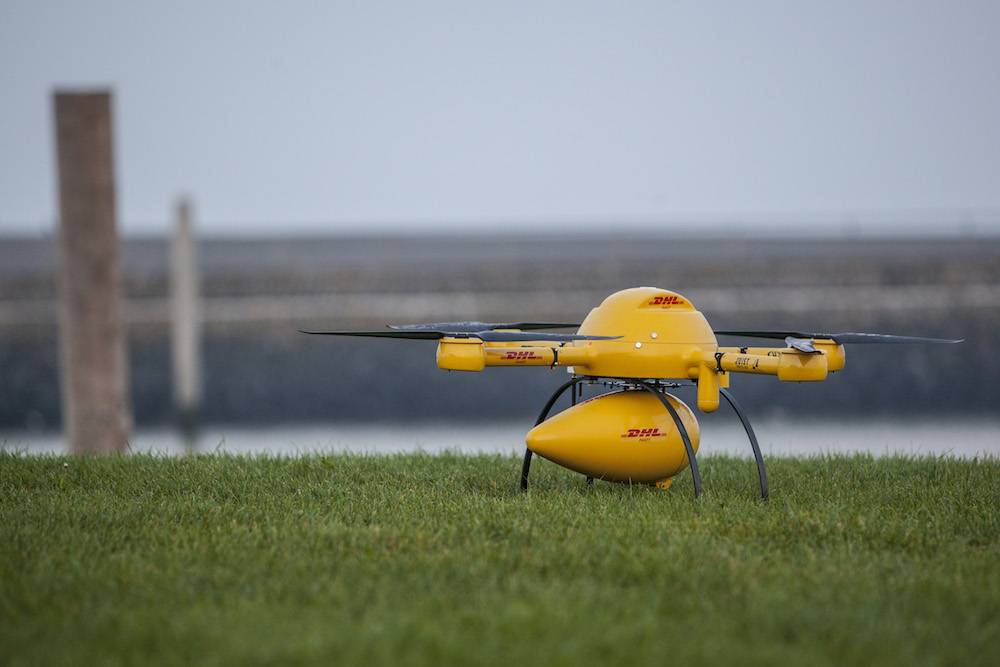
DHL's new and improved delivery drone will take off from the coastal town of Norddeich, Germany and travel roughly 7.5 miles (12 kilometers) to Juist, an island in Germany's North Sea. The drone's battery allows it to fly for about 45 minutes before needing to be recharged.
Up, Up and Away
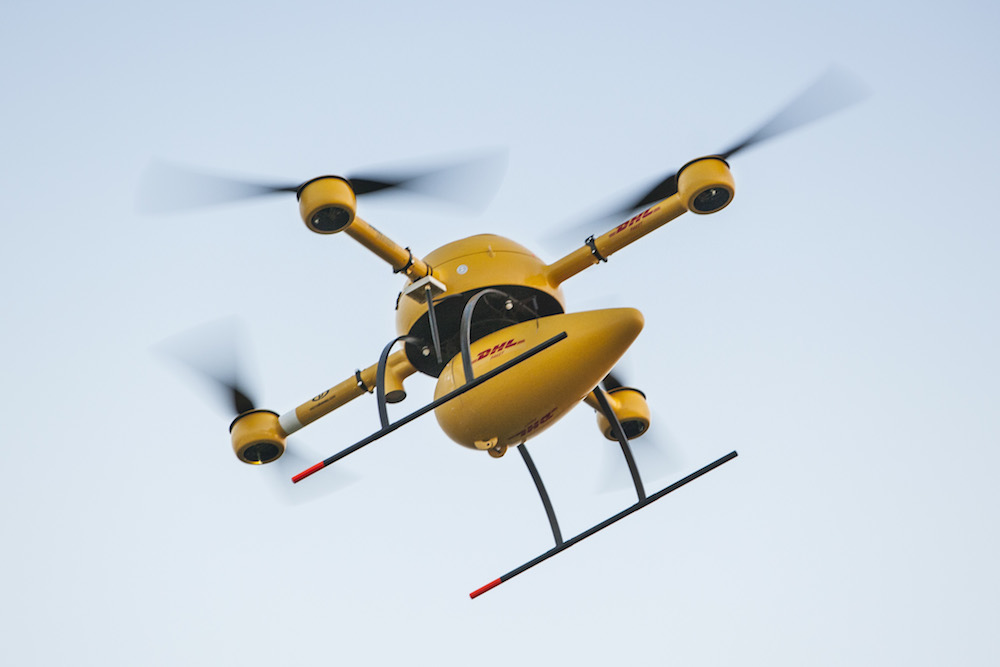
The drone is known as a quadrocopter, and is equipped with four identical propellers. The speed of each of these propellers can be controlled individually to change the direction of the drone. This small machine is surprisingly quick and can reach speeds of up to 40 miles per hour (64 km/h) if wind conditions are favorable.
Unmanned Autopilot
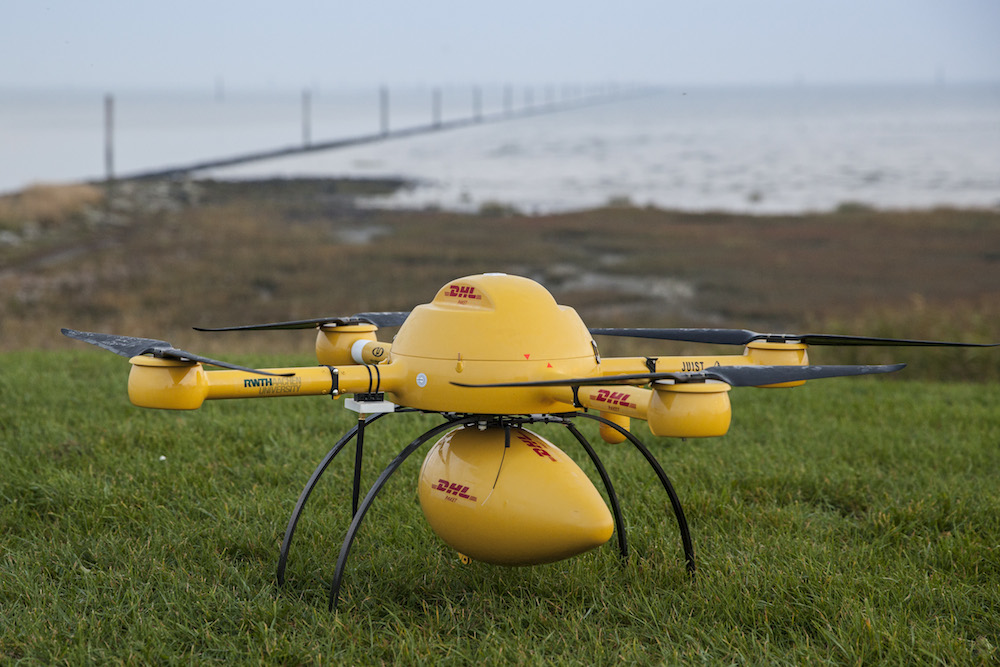
For their delivery runs to Juist, the drones will use an advanced autopilot feature that allows them to take off and land without assistance from a pilot. Once they arrive on the island, their cargo will be unloaded and delivered to residents by a human courier.
Special Delivery
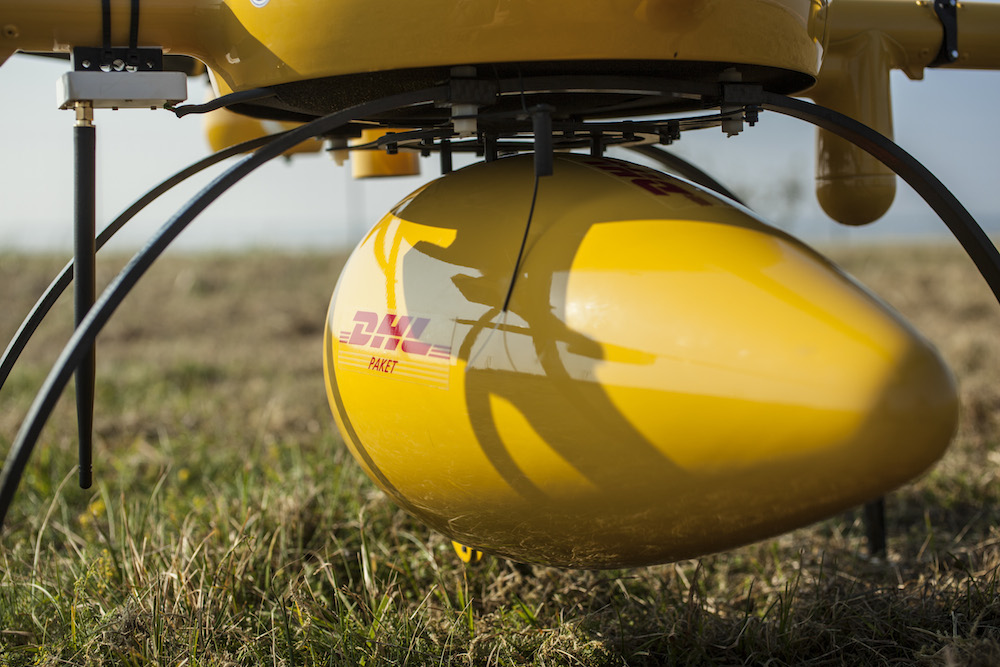
Each drone is equipped with a lightweight, weatherproof container that attaches to its undercarriage. These containers will be used to deliver medications and other emergency goods to people on the island of Juist. Residents can sign up for this special delivery service at a local pharmacy. The "parcelcopter" can carry a load of up to 2.6 pounds (1.2 kilograms). The drone itself weighs 11 pounds (5 kg).
Humans At the Ready
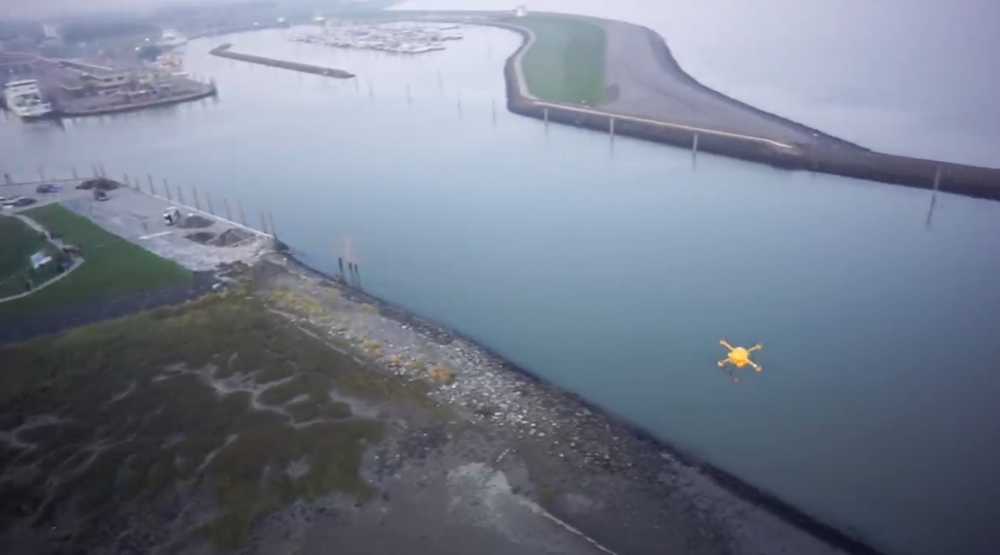
Though the drones will be running on autopilot, DHL has set up a mobile ground station in Norddeich so that manual action can be taken if an aircraft malfunctions, or if an emergency occurs.
Get the world’s most fascinating discoveries delivered straight to your inbox.
 Live Science Plus
Live Science Plus










